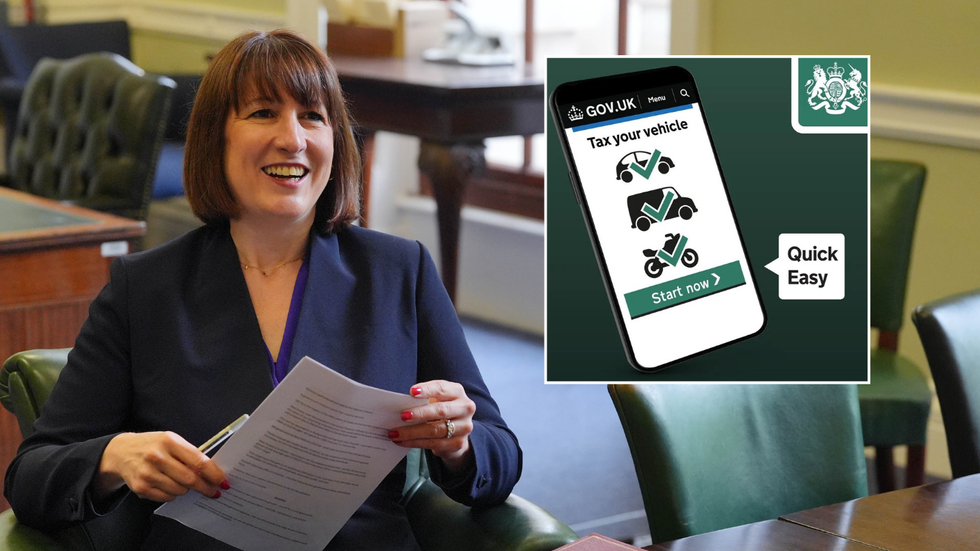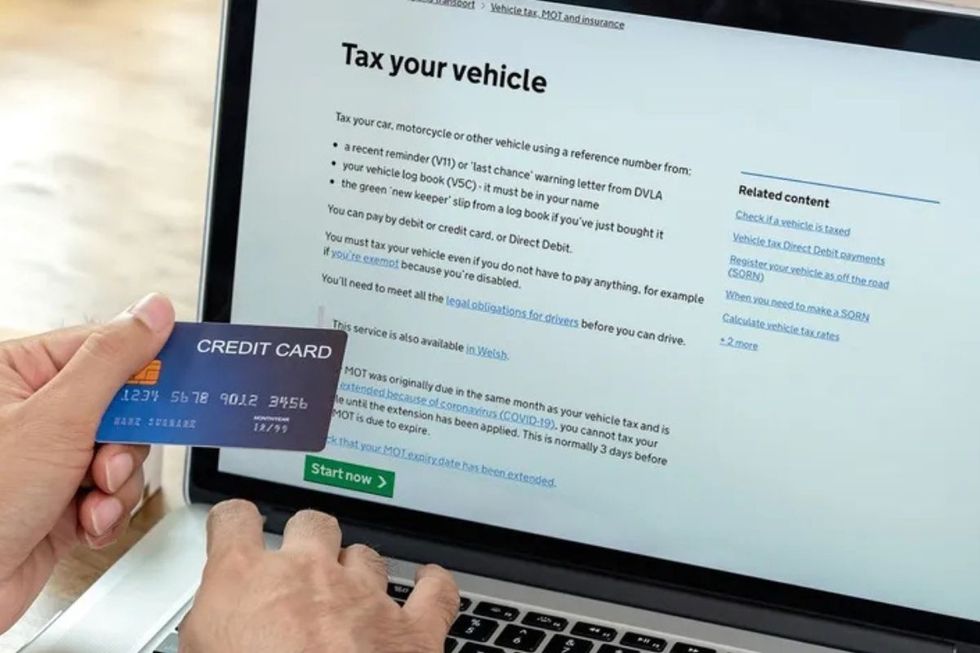WATCH: Rachel Reeves announce changes to Benefit-in-Kind taxes for all vehicles
GB NEWS
From today, drivers of company cars will be charged more to travel on UK roads
Don't Miss
Most Read
Trending on GB News
Motorists have been warned of new changes to Benefit-in-Kind tax (BiK) rates launching today, which could see thousands pay more to travel on UK roads.
The changes, which were announced during the Autumn Budget in October last year, saw the Government set out changes to company car tax bands for the next five years.
One of the biggest measures announced by Chancellor Rachel Reeves was the rates for electric vehicles increasing gradually while maintaining a significant differential compared to petrol and diesel cars.
The changes aim to provide long-term certainty for taxpayers and industry while continuing to incentivise the adoption of electric vehicles.
Do you have a story you'd like to share? Get in touch by emailingmotoring@gbnews.uk

BiK rates will be changed from today, with electric car owners paying the lowest threshold
PA/DVLAFor the 2025/26 tax year, electric vehicles will see their BiK rate rise by one per cent every year from two per cent tonine per centin 2029/30.
Despite these increases, electric vehicles will maintain a significant tax advantage over conventional petrol and diesel cars, which typically face rates starting at 25 per cent or higher.
For salary sacrifice schemes, these low BiK rates translate to substantial savings for employees choosing electric vehicles.
Hybrid vehicles will see a significant change in their Benefit-in-Kind rates in the coming years, particularly from 2028/29.
While hybrids with CO2 emissions between 1-50g/km currently enjoy relatively low rates based on their electric range, they will face a substantial increase from 2028.
Vehicles with emissions of 1-50g/km will jump to an 18 per centBiK rate in 2028/29 and 19 per cent in 2029/30, regardless of their electric range capability.
This represents a dramatic increase from the previous year's rates, which range from five per cent to 17 per cent depending on electric range.
The change signals the Government's intention to focus tax incentives more narrowly on fully electric vehicles rather than hybrid technology.
For vehicles with CO2 emissions between 51g/km and 54g/km, the BiK rate will increase to 19 per cent in 2028/29 and 20 per cent in 2029/30.
Cars with higher emissions will see their rates rise by one percentage point each year, with a sliding scale based on CO2 output. The maximum BiK rate will increase from 37 per cent to 38 per cent in 2028/29 and to 39 per cent in 2029/30.
This will apply to vehicles with CO2 emissions of 160g/km or higher, which currently face the maximum 37 per cent rate.
Diesel vehicles not meeting the emission standards will continue to incur a four per cent surcharge, up to the maximum rate.
LATEST DEVELOPMENTS:

Under the new Benefit-in-Kind rates, drivers will pay more for company cars
X/DVLAThe changes are expected to impact an estimated 760,000 employees who drive company cars, according to HMRC.
The Government said it expects these changes to generate an additional £135million in 2028/29 and £210million in 2029/30 for the exchequer.








